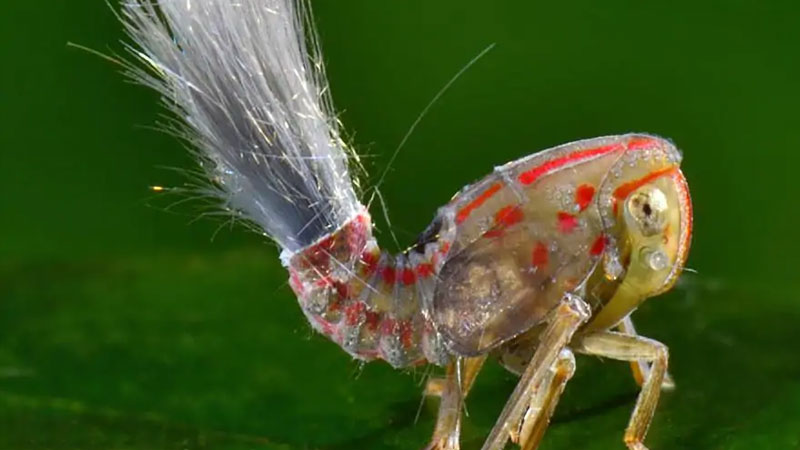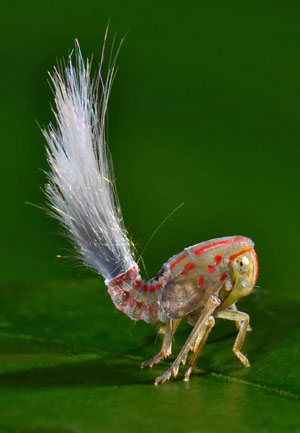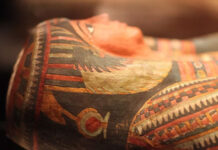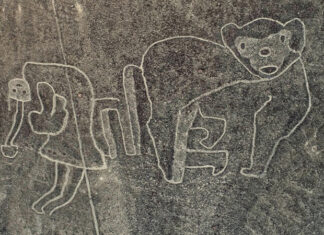
Trond Larsen was lucky enough to find and photograph this tiny insect about five millimeters long during an international expedition of field biologists to the mountainous region of southeastern Suriname.
It was a quick maneuver, performed “with a lot of difficulty as they jump away so quickly,” said Larsen of Conservation International’s Rapid Assessment Program.
This was also why Larsen was unable to collect the insect specimen, which would be necessary to compare it to other insects and find out if it is a known species.
Another aspect that makes identification difficult is the fact that the Fulgoromorpha is at the beginning of its development stage, which makes it very different from an adult.
Some insects go through a simple metamorphosis (sometimes called incomplete or gradual metamorphosis), which means they transform into a slightly larger nymph and then become adults with full wings, according to Leeanne Alonso of the NGO Global Wildlife Conservation, which also participated in the expedition.
Alonso noticed that the “wing buds” of the young insects were visible in the photograph.

As for the spectacular source of plumage, scientists say that it is a waxy secretion expelled by many Fulgoromorpha from their abdomen, which can protect them against predators and parasites.
One would think that this would serve to attract, not distract. But this insect’s predators would be very small, and grabbing those waxy tufts can be a challenge. The hairs can even break off, like a gecko’s tail, allowing the insect to live another day.
In addition to the strange Fulgoromorpha, scientists have also found an incredible array of biodiversity in the Surinam rainforest, collecting data on 1,378 species.
“It’s one of my favorite places in the world,” says Alonso, although she mentions that gold mining is threatening the pristine nature of the place.


















